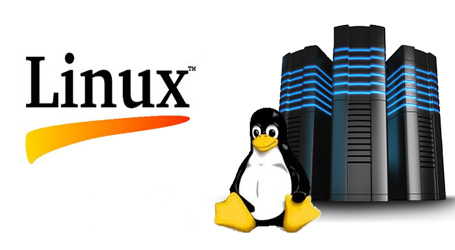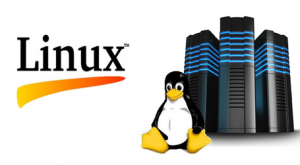Linux is a hugely stable operating system, very fast, completely working and similar to unix. It is developed by a few thousand people on the internet. Distributed under the GNU General Public License, linux is free. Linux is used by millions of people, organizations and companies around the world.
Linux
It is only the nucleus. A core and piece of software that regulates communication between hardware and applications. It sounds simple, but in truth, it is an extremely complex devoir. Each operating system has a kernel, but it is rare that this one bears this name.
Operating system
A core for being is of no use to anyone. In order for a man to work with it, there need other basic programs. The init program, for example, is one of those important pieces, without which the operating system cannot start.
X-Server
It is possible to install an operating system on a 10 MB disk. But this is not very practical. Today, we would like a little more comfort in the form of a graphic surface. All the same, it should be noted that the graphics surface is not a part of the operating system.
Applications
Everything we use to work with the computer (eg word processing, accounting, games, photo processing ect.)
Distributions
All that is noted above is a distribution together. Distributors are independent organizations that collect and distribute software for Linux. More information on distributions.
Screenshots
Since many Screenshots require a lot of space and a lot of bandwidth (bandwidth), they are on another page.
The qualities
Supported platforms
- with either 32 or 64 bit, depending on the architecture of the computer
- multitasking: there are several programs at the same time
- multiple users at the same time
- linux supports many different processors
- SMP (Symmetric Multi-Processing) for up to 16 processors
- clustering: there are 520 with computers
- with protected memory, a program cannot take the whole system
- programs only call up the shares they need
- virtual memory (only a few parts of the programs can be transferred to the hard disk
- free memory is managed all together. Like that, all the memory can be used as cache memory
- dynamically combined libraries (DLL), of course also static libraries
- mostly compatible with unix (POSIX, system V and BSD) at source level. The unix98 standard is also ambitious (and will soon be reached)
- POSIX Job control, scheduling similar to QNX is also possible
- a non-fragmenting file system (Extended 2) with long file names (255 characters) and partitions with a maximum of 4 terabytes.
- supports a dozen file systems, for example VFAT / FAT32, Windows NT / NTFS, MacOS / HFS, QNX, BSD 4.3, Coda and Amiga / AFFS
- maximum 64 virtual consoles
- all the source is available, including the kernel and all the drivers
- fast, really fast! And probably the fastest 100Mbit-Ethernet TCP / IP code in the world
- a large part of the PC-hardware is supported, also sound cards, ethernet, ATM, appletalk, TV, ISDN and multi-port cards, joysticks etc
many network protocols like TCP / IP (versions 4 and 6), IPX / SPX, TokenRing, Ethertalk, Appletalk etc
- lots of exclusive documents like masqerading, tunneling, forwarding, routing, firewall etc
Preconditions
For Linux, you need at least 4 MB RAM respectively 8 for the X Window System. 32 MB is recommended. It is possible to install a minimal system with less than 50 MB on the hard drive, but we recommend 500 MB. 80386sx is the minimum as a processor.
Who is using linux?
Many individuals use linux as a workstation; especially students, system administrators and programmers. Linux is also involved in many companies, especially as a server for tasks like email, www, file server, firewall or as a program server. Some companies use linux as thin clients which can be managed by the network. Linux is also very popular with internet providers.
Reasons to use linux
It is faster, cheaper, more stable and better scalable than Windows NT. Less expensive to maintain than Windows NT (or another unix). Less expensive than a commercial unix. Easy to maintain via the internet. Stable. Better hardware support compared to FreeBSD, SCO or Solaris / x86. More modern than for example SCO. The sources are availables. Enormously fast correcting mistakes.
Who supports Linux users?
You receive free support from digital internet newsgroups, mailing lists and many sites at www. You have the option of sending an email directly to the programmer. You can also contact your local linux or unix user group. If you need business support, you can contact a distributor or a company that uses and supports Linux.
Software
Almost everything that goes under any unix also goes under linux. For example, also the netscape navigator and communicator. The 86Open standard will define a common binary format for almost all Unix based on x86 (SCO, Unixware, Solarix / x86, BSD and of course Linux).
All GNU Software (also Emacs), Gimp and several GNU compilers are transferred to Linux.
There are also office suites for Linux, for example StarOffice , ApplixWare , and KOffice .
There are databases: Oracle, DB2, Informix and Sybase have already been transferred.
And the games: There are naturally also games, and it always gets better. iD Software wants to port all of its games to Linux. It is also worth going to Loki who has made a list of games they have already worn.
About the author
DMTwebhosting.com’s Editorial Team prides itself on bringing you the latest web hosting news and the best web hosting articles!
You could also link to the news and articles sections:
http://www.DMTwebhosting.com/blog





